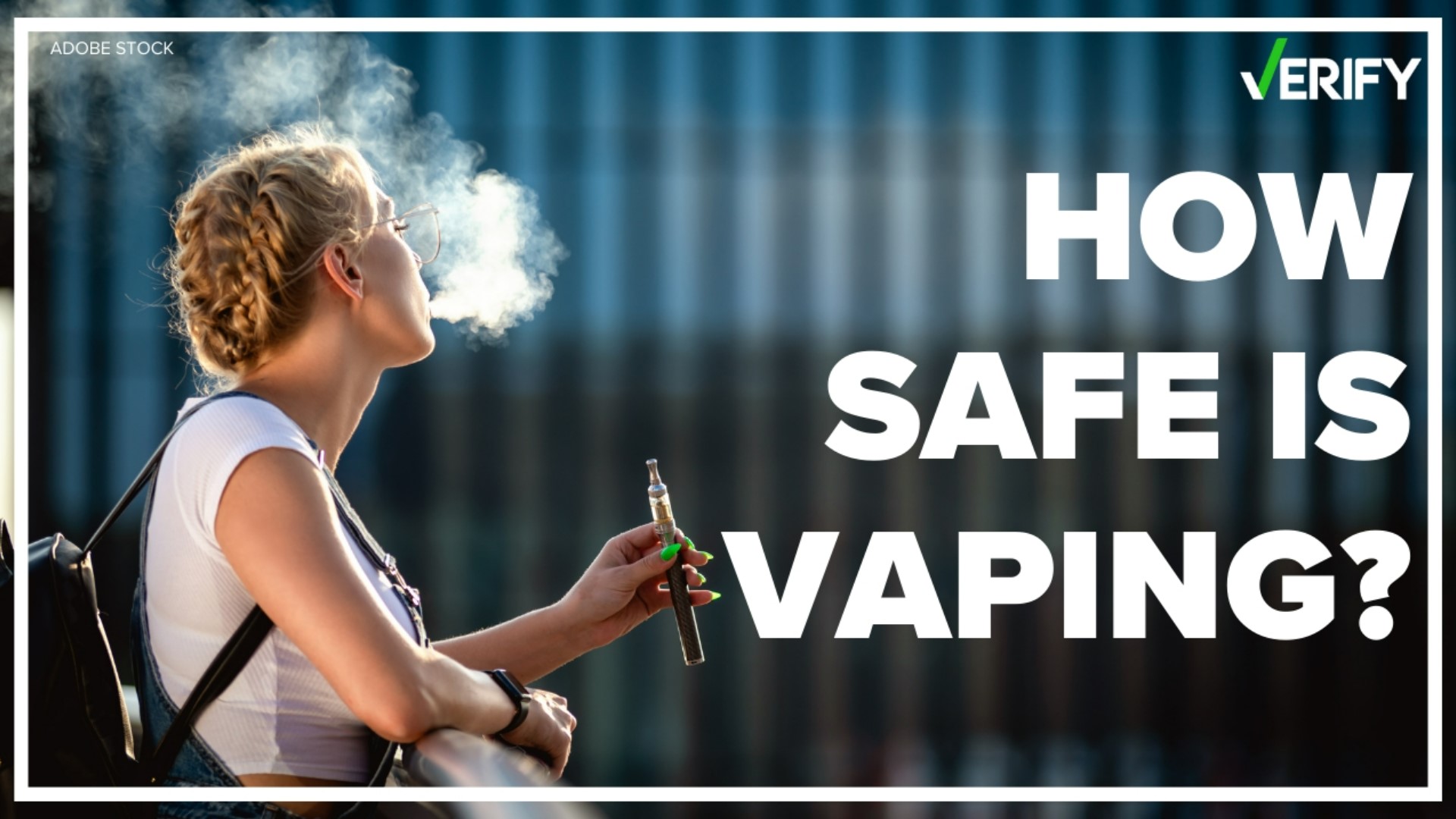CHARLOTTE, N.C. — JUUL filed in court Tuesday a request to extend the temporary pause on its product ban in the U.S. The e-cigarette company is fighting back against last week's FDA order to stop selling and distributing its products nationwide.
Since that announcement, some have taken to social media to tout, what they claim, is the relative safety of regulated vaping products.
Among the online claims are assertions that only illicit, THC-based vaping products have caused injuries and deaths, not commercial nicotine-based vaping products, which would be targeted, in part, by the JUUL ban.
THE QUESTION
Are THC products the sole cause of vaping-related illnesses and deaths in the U.S.?
THE SOURCE
- Alyssa Dittner, respiratory therapist and COPD Program Coordinator at Novant Health
- The CDC
THE ANSWER
No, THC products are not the sole cause of vaping-related illnesses and deaths in the U.S. The CDC has documented nicotine-only vapers who have been hospitalized with lung damage.
WHAT WE FOUND
In August 2019, the CDC started tracking an outbreak of damaged lungs after vaping. Over a six-month period, it recorded 2,807 vaping-related hospitalizations and deaths.
The average age of those who died was just under 50, but some were as young as 15 years old.
The CDC study also found that 33% percent of vaping patients only used THC-based products, and 14% of those hospitalized said they only used nicotine. Many used both types of products.
In late 2019, then-principal deputy director of the CDC, Dr. Anne Schuchat announced the agency's belief that vitamin E acetate added to some THC vaping products at the time was likely behind the outbreak. However, she said they could not absolve other vaping substances, including nicotine-based ones.
"That doesn't mean that vaping products with THC or other substances are safe, and it doesn't mean e-cigarettes that are nicotine-only are safe," Schuchat said on the December 2019 call with reporters.
Dittner reminds us that there is still ongoing research on what vaping does to the body, noting that she hears from vaping patients who report asthma symptoms, fatigue, and anxiety.
"Vaping is still relatively new, and it really just is... approaching its second decade, so we really don't have the data to support any long-term risks," Dittner said. "It took several decades to link lung cancer and other lung-related illnesses to traditional cigarettes because it takes a long time for these things to develop."
Contact Vanessa Ruffes at vruffes@wcnc.com and follow her on Facebook, Twitter and Instagram.
VERIFY is dedicated to helping the public distinguish between true and false information. The VERIFY team, with help from questions submitted by the audience, tracks the spread of stories or claims that need clarification or correction. Have something you want VERIFIED? Text us at 704-329-3600 or visit /verify.

